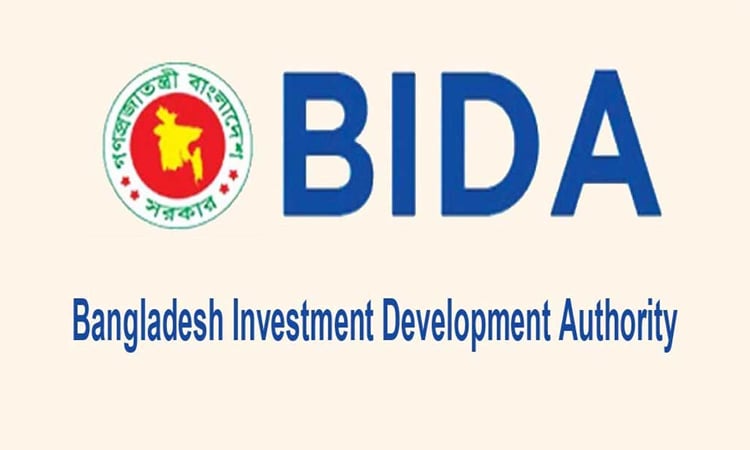News Flash
News Flash

DHAKA, Jan 15, 2025 (BSS) – Executive Chairman of Bangladesh Investment Development Authority (BIDA) Chowdhury Ashik Mahmud Bin Harun today said that the BIDA would organize an investment summit in Bangladesh on April 7-10, 2025 to attract more investment in the country.
“CEOs of big foreign companies will remain present there. There will be an opportunity for startups as well as big entrepreneurs of the country to exchange views with them,” he said.
Ashik informed this while addressing a seminar as the chief guest in the capital today.
The Economic Reporters’ Forum (ERF) hosted the seminar on “Investment Prospects and Challenges” today at its auditorium highlighting critical issues affecting the investment climate in Bangladesh.
Ashik said the government has no desire to do business of its own, rather it wants to come out of many businesses and from which businesses it will come out would be clarified within the next six months.
He also hinted that the unused areas of closed down state-owned industrial factories would be released to the investors for their use.
Ashik said it is possible to start production in those factories speedily since these places have gas, electricity connections and other infrastructural facilities.
He also noted that availability of power and energy is very much essential to woe more investment.
Calling upon the business community to become the investment ambassadors of Bangladesh, he suggested them to highlight the positive aspects of Bangladesh instead of negative issues wherever they speak to bring FDI to Bangladesh.
Mentioning that many agencies are now working to attract investment, he said that efforts are on to bring them under one agency so that the investors can get all services from a single place.
“For this, we are creating an investment heat map. We are trying to appoint customer relationship managers. They will visit different offices and do the work and thus reach results to the customers within a specific timeframe,” he added.
Ashik emphasized the government's commitment to addressing the challenges of boosting investment and said, “BIDA has identified over a thousand barriers to investment and will initially focus on resolving 21 key issues.”
Among the strategies discussed was merging public organizations involved in investment promotion and regulation into a unified entity to streamline processes and reduce investor obstacles.
He also said that the government decided to avoid public business in fields where the government interventions are not required.
Ashik also said that the private sector is the growth engine of the economy and the BIDA would use appropriate intervention to boost private investment from home and abroad.
Speakers at the seminar highlighted critical issues affecting the investment climate in Bangladesh.
AK Azad, former president of the Federation of Bangladesh Chambers of Commerce and Industry (FBCCI), Md Hafizur Rahman, administrator at the FBCCI, Iqbal Chowdhury, CEO, LafargeHolcim Bangladesh PLC, Abul Kasem Khan, former president, Dhaka Chamber of Commerce and Industry (DCCI) spoke among others at the event.
Azad urged the interim government to seize its unique position, free from electoral pressures, to implement impactful reforms.
“This government has the opportunity to enhance industrial growth by prioritizing gas and electricity supply to the industrial sector without expanding residential gas connections,” he stated.
Abul Kasem Khan, former DCCI president, highlighted the need for $50 billion annual investment in infrastructure.
Khan also called for reforms to eliminate redundant licenses, like trade licenses, proposing a simplified renewal system via banking channels.
Iqbal Chowdhury, CEO of LafargeHolcim Bangladesh PLC, emphasized Bangladesh’s potential but stressed the need to protect existing investments before pursuing new ones.
He urged a more business-friendly approach to foster both domestic and foreign investment.
Md Hafizur Rahman, administrator at the FBCCI, said that it is very difficult to initiate and operate a new business with a high rate of VAT and tax.
The government should reduce such taxes for businesses for a certain time period.
He urged on encouraging startups with funds and supports.
Nahian Rahman Rochi, Head of Business Development, BIDA presented a keynote on “FDI Heatmap,” at the event.
He said that the FDI inflow reduced to 0.3% of the GDP in the last fiscal year which was about 0.5% in the FY2020-21.
The inflow remained stagnant within a range of $1.3 billion to $1.7 billion in the last four years.
He also said that only 45% of the total amount is direct FDI and the rest are intercompany loans or reinvestments.
ERF Secretary Abul Kashem moderated the event chaired by ERF President Doulot Akter Mala.